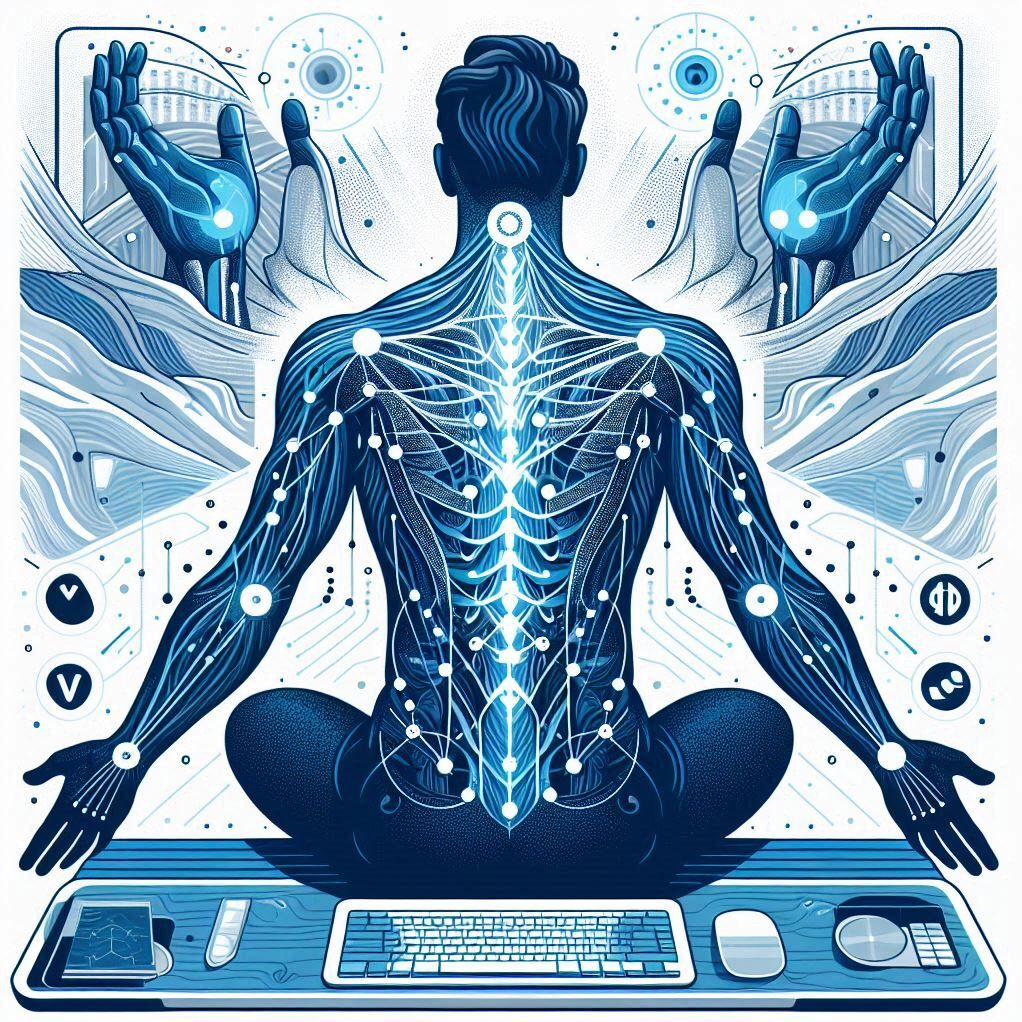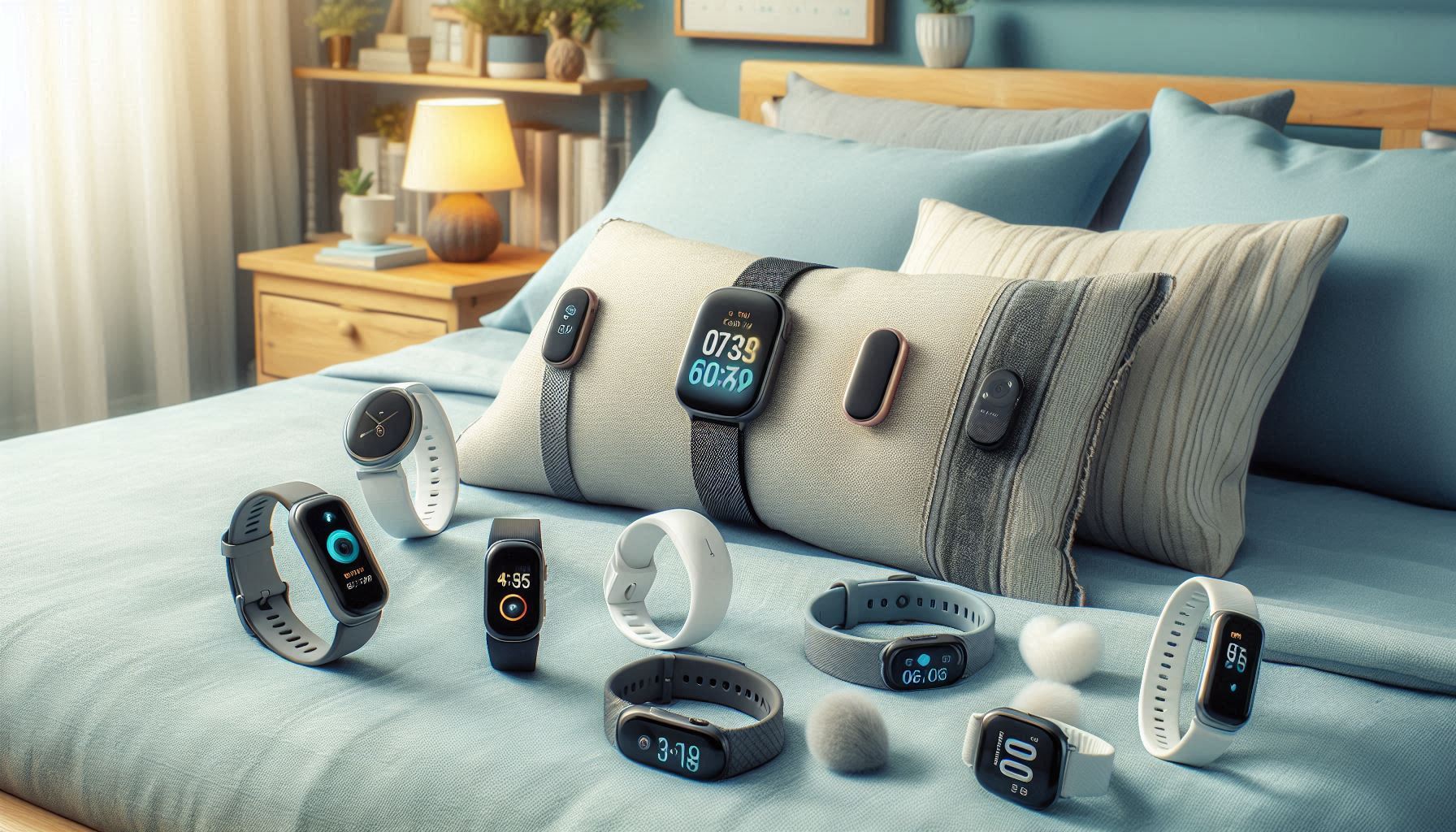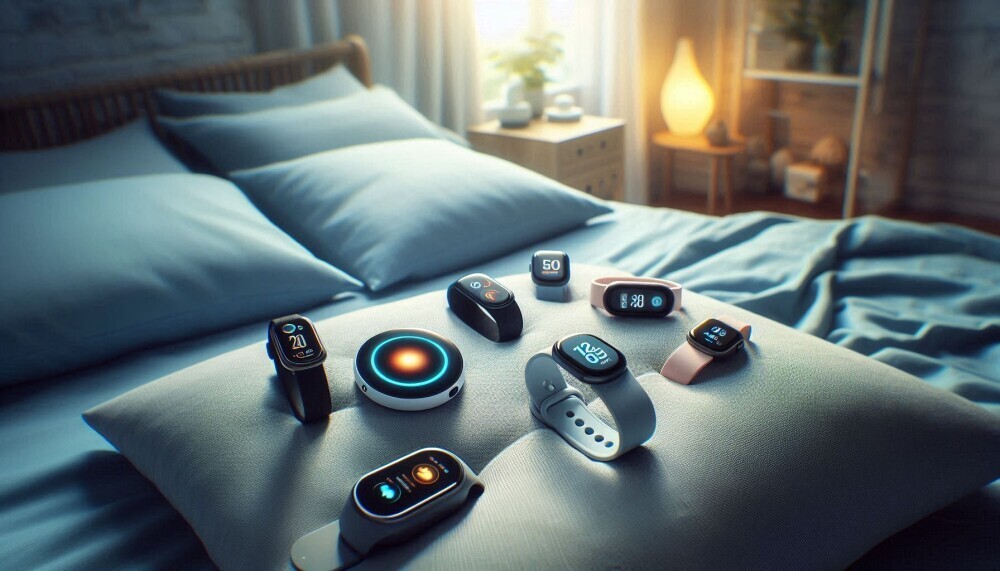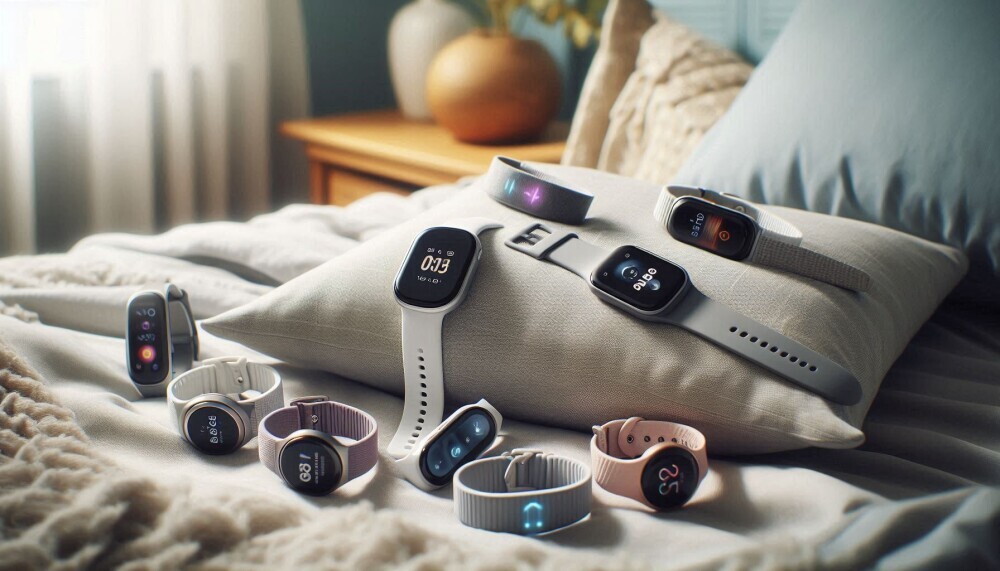Welcome to our wearable health tech website Vertevia.com. This article will be taking a look into just How To Improve Sleep Quality Using Wearable Tech. Are you currently using any wearable tech devices to monitor your sleep? If you are, please let us know in the comments section at the bottom of the page which ones you are using and what your opinions of them are. Right, let’s begin!
Introduction
Sleep is one of the foundational pillars of overall health and well being, yet millions of people around the world struggle to get enough top quality rest. Poor sleep can lead to a range of health issues, including weakened immunity, impaired cognitive function, weight gain, and even chronic diseases like hypertension and diabetes. As the modern lifestyle continues to present challenges to our sleep patterns, from late night screen time to stressful schedules, technology has stepped in to offer innovative solutions. One of the most promising of these solutions is wearable health technology devices.
Wearable devices, ranging from smartwatches and rings to specialized sleep trackers, offer the potential to significantly enhance our understanding and management of sleep. By monitoring key metrics such as heart rate variability (HRV), sleep stages, respiratory rate, and movement, these devices provide valuable insights into sleep patterns and disturbances. With this data, users can make informed decisions and lifestyle adjustments to improve sleep quality. This article explores how wearable tech can be harnessed to optimize your sleep, highlighting the best devices, essential features to look for, how to interpret your data, and strategies for integrating tech into your regular sleep routine.
Why Sleep Quality Matters
Sleep is not just about quantity. Quality is equally, if not more, important. Good quality sleep consists of sufficient amounts of deep sleep and REM (Rapid Eye Movement) sleep. Deep sleep restores the body, boosts immune function, and aids muscle recovery. REM sleep, on the other hand, plays a critical role in memory consolidation, emotional processing, and cognitive performance. Fragmented or shallow sleep can prevent you from reaching these essential sleep stages, leading to a host of physical and mental health issues.
Wearable health tech helps bridge the gap between the perception and reality of sleep. Many people believe they are getting enough rest simply because they spend a certain number of hours in bed. However, wearable tech devices provide objective data that highlight discrepancies, empowering users to take actionable steps toward better sleep.
The Benefits of Using Wearable Tech for Sleep
- Real Time Monitoring: Wearables track various physiological signals throughout the night, such as heart rate, skin temperature, and movement, providing an in depth analysis of your sleep cycle.
- Data Driven Insights: With machine learning and AI algorithms, these devices can identify patterns and offer personalized recommendations based on your unique sleep behaviour.
- Daily Feedback: Many wearable tech devices offer morning reports that summarize your sleep duration, efficiency, and sleep stages. This helps you assess the impact of daily habits like caffeine intake or screen use before bed.
- Health Integration: Some wearables integrate sleep data with other health metrics such as activity level, stress, and nutrition, offering a holistic view of your wellness.
- Behavioural Coaching: Premium models often include sleep coaching, helping you set realistic goals, follow sleep hygiene principles, and improve sleep quality over time.
Top 7 Wearables for Monitoring and Improving Sleep Quality
1. Oura Ring Gen 3
- Price: £279 + £5.99/month subscription
- Key Features: Tracks sleep stages, HRV, respiratory rate, body temperature, readiness score, and SpO2.
- Benefits: Non intrusive, comfortable to wear during sleep, highly accurate sleep data, excellent app interface.
- Pros: Sleek design, advanced metrics, long battery life (up to 7 days).
- Cons: Subscription required for full features, no screen.
2. Whoop 4.0
- Price: £30/month subscription
- Key Features: 24/7 monitoring, sleep performance analysis, strain recovery, skin temperature, HRV.
- Benefits: Offers personalized coaching and sleep debt tracking.
- Pros: Lightweight, great for athletes, detailed analytics.
- Cons: No screen, only works with subscription, steep learning curve for beginners.
3. Fitbit Sense 2
- Price: £249.99
- Key Features: Sleep stages, oxygen saturation, stress management, ECG, HRV.
- Benefits: All in one smartwatch with solid sleep tracking capabilities.
- Pros: Smart notifications, decent battery life (6 days), user friendly.
- Cons: Less detailed sleep data compared to specialized devices.
4. Apple Watch Series 9
- Price: £399
- Key Features: Sleep tracking, heart rate, blood oxygen, ECG, mindfulness app integration.
- Benefits: Seamless integration with iOS and Health app.
- Pros: Multifunctional, highly customizable.
- Cons: Shorter battery life (up to 18 hours), more expensive.
5. Withings ScanWatch
- Price: £279.95
- Key Features: Sleep score, HRV, SpO2, respiratory scan, classic watch design.
- Benefits: Stylish hybrid, combines analogue feel with advanced tracking.
- Pros: 30 day battery life, discreet design.
- Cons: App interface not as intuitive as others.
6. Garmin Vivosmart 5
- Price: £129.99
- Key Features: Advanced sleep tracking, Pulse Ox, HRV, stress tracking, body battery.
- Benefits: Compact design, ideal for sleep and activity tracking.
- Pros: Affordable, solid battery life (7 days).
- Cons: Smaller display, fewer smartwatch features.
7. Polar Ignite 3
- Price: £199
- Key Features: Sleep Plus Stages, Nightly Recharge, HRV, breath training.
- Benefits: Ideal for athletes and fitness focused individuals.
- Pros: Lightweight, vibrant display.
- Cons: Battery drains quickly with GPS on.
Frequently Asked Questions (FAQs)
- Can sleep trackers really improve sleep quality? Yes, by providing personalized data and insights, sleep trackers help users identify disruptive patterns and adopt healthier sleep habits.
- Are wearable sleep trackers accurate? While not as precise as polysomnography in a lab, most high-end wearables offer reliable metrics and trends that are useful for personal health tracking.
- Do I need a subscription to access all features? Some devices like Oura and Whoop require subscriptions, while others like Fitbit and Apple Watch offer basic insights for free.
- Is it safe to wear wearables overnight? Generally, yes. These devices emit very low levels of electromagnetic radiation and are designed for overnight use.
- How soon can I see improvements? Many users notice changes within a week, especially when adjusting bedtime routines based on feedback.
- What if I wake up feeling tired despite good sleep scores? Other health factors such as stress, diet, or medical conditions may be affecting your rest. Use sleep data as one part of a bigger wellness picture.
How to Get the Most from Your Sleep Tracker
- Be Consistent: Wear your device nightly to get a complete picture of your sleep patterns.
- Monitor Trends, Not Just Daily Data: Don’t obsess over nightly fluctuations. Look for long term patterns.
- Pair with Good Sleep Hygiene: Avoid screens before bed, maintain a regular sleep schedule, and create a comfortable sleep environment.
- Use App Features: Take advantage of smart alarms, sleep coaching, and bedtime reminders.
- Integrate Data: Sync sleep data with nutrition and activity logs for a full wellness snapshot.
- Customize Settings: Adjust sensitivity or notification settings to avoid sleep disruptions.
Conclusion
Improving sleep quality is a crucial step toward better physical, emotional, and mental well being. Wearable health technology offers a powerful toolkit for achieving this goal, delivering real time insights and practical recommendations that help demystify your sleep health. By understanding your unique sleep patterns and how they relate to daily habits, you can take proactive steps to optimize your rest and, in turn, your overall quality of life.
Whether you’re an athlete aiming for peak performance, a professional seeking mental clarity, or simply someone who wants to wake up feeling refreshed, integrating a wearable sleep tracker into your nightly routine can make a significant difference. With consistent use, actionable insights, and a commitment to better sleep hygiene, wearable tech can transform not just how you sleep, but how you live.
Our Thanks!
Many thanks to you for giving the time to read through this article on How To Improve Sleep Quality Using Wearable Tech. Hopefully, you have found it helpful in your search for suitable sleep monitoring wearable tech devices. If you would like some further reding on this topic, take a look through our blog! There are lots of really helpful and informative articles on this and other wearable health tech subjects. You might like our related article which is titled The Best 5 Sleep Monitoring Devices.
Please let us know in the comments which type of wearable tech sleep devices you are currently using or plan to buy in the future!
**Here is a bit of transparency. Our website www.vertevia.com does contain affiliate links and Amazon links. So, if you did make a purchase through the website, we may receive a small commission. This is at no extra cost to you whatsoever. It’s just a way for you to support us as we continue to bring you top quality content**
All the best!
Eamon





